A rewarding teaching career starts here
Griffith’s School of Education and Professional Studies continues to drive the future of education, bringing a wealth of experience and expertise to the structure and delivery of our education degrees. Griffith is Queensland's most in-demand University for initial teacher education*. We're perfectly positioned to prepare the teachers of tomorrow in priority areas like STEAM education, digital coding, literacy, wellbeing and early childhood education.
Building on a 50 year history of teacher preparation, the school brings this experience into a dynamic unit that operates across campuses at Gold Coast, Logan, Brisbane South (Mt Gravatt) and online. Our lecturers are recognised as some of the best in Australia and have been awarded nationally for their excellence in teaching.
Our students are among the best graduate success rates in Australia and are in-demand in the independent, Catholic and state education systems, as well as internationally.
*QTAC first preferences 2023
What can I study?
Find out about flexible study options in early childhood, primary & secondary teaching, special education, autism studies
Exceptional Education experience
Our staff are recognised as leaders in their fields, including winners of national research and teaching awards, such as former Australian University Teacher of the Year, Associate Professor Kevin Larkin. Associate Professor Larkin is an inspirational mathematics educator with more than 35 years of teaching experience. He has spent the past 9 years inspiring and motivating pre-service teachers and transformed how mathematics education is taught.
Explore

Opportunities
Opportunities for students and teachers
Our School supports a range of high school programs across Gold Coast, Logan, and Brisbane South (Mt Gravatt). The School has strong relationships with schools and industry partners, including two school-based teacher education centres of excellence.
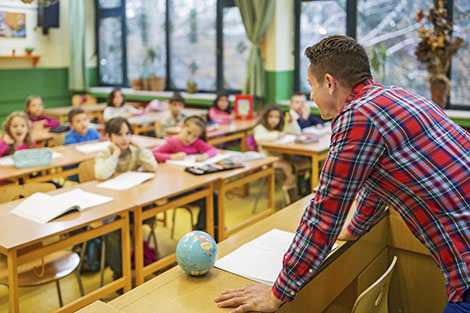
Professional experience placements
Be immersed in the real teaching world
Preservice teachers are placed in early childhood settings, primary and secondary schools, across the range of state, independent and catholic systems in the Brisbane, Logan, Gold Coast and northern New South Wales districts.
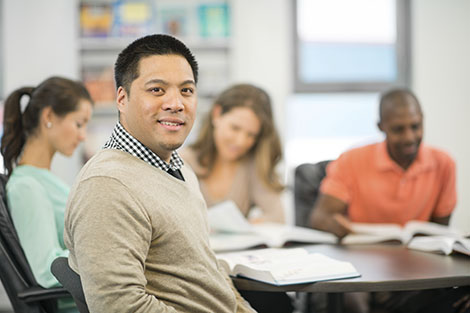
Professional learning hub
Tailored professional learning opportunities
Our flexible and responsive approach allows you to choose the design and delivery elements that meet your needs. Bringing together the expertise of Griffith University’s academics and research centres, our professional learning is designed to deliver creative solutions for the workplace of tomorrow.
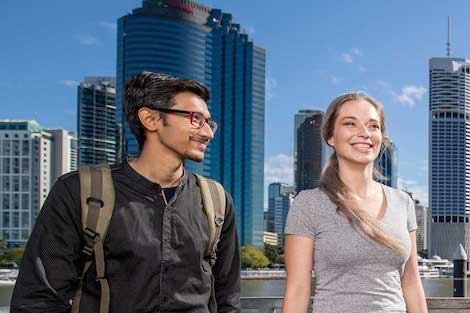
International engagement
Supporting students to build global networks
The School of Education and Professional Studies is committed to supporting both international and domestic students to engage in internationalisation and learning opportunities across borders.
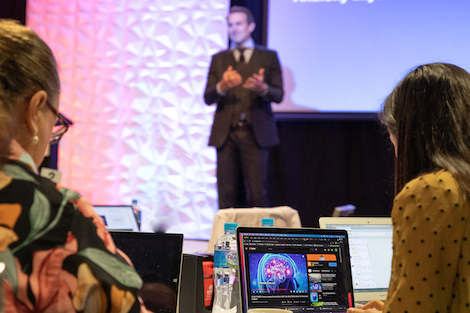
Creating Futures Summit resources
Bringing together the education sector
View resources and information relating to current and prior Creating Futures Summits through the School of Education and Professional Studies.
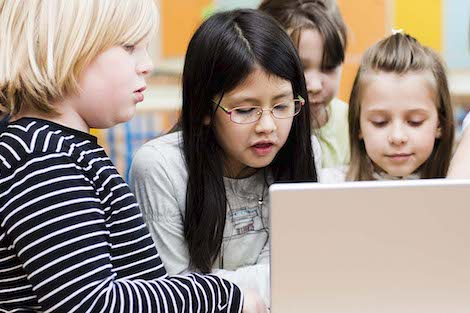
Resources for online learning
Keeping students engaged when learning remotely
Dr Sarah Prestridge's Teaching Rapid Response Series provides free online resources for teachers eager to keep students engaged remotely.
Autism Centre of Excellence
The central focus of the Autism Centre of Excellence (ACE) is improvement in the quality of life of children and adults with autism. The ACE seeks to support learning for people with autism across their life span and open doors of opportunity – from early childhood, to further education and employment. The ACE is a multidisciplinary initiative drawing on expertise from areas such as education, health and behavioural sciences. All Autism Studies programs have been 100% online since 2012.
Griffith Institute for Educational Research
The Griffith Institute for Educational Research (GIER) is an interdisciplinary coalition of researchers working to ensure that the benefits of educational and learning opportunities—wherever they take place, whenever they occur—can flow equitably to all members of our society. GIER is home to more than 60 researchers and 50 HDR students making us one of the largest concentrations of educational researchers in Australia.
Featured alumni
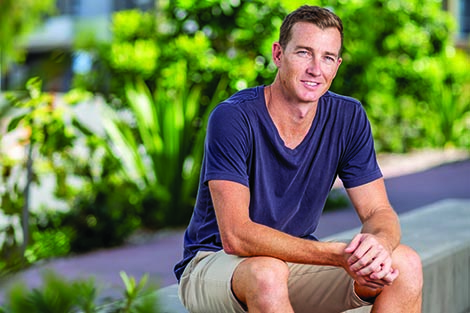
Phillip Pearce
With a passion for child developmental psychology, Phillip Pearce saw a Master of Primary Teaching at Griffith University as the perfect choice. ‘My study has given me the ideal balance of practical knowledge and underpinning theory,’ he said. ‘The lecturers are all experienced classroom teachers so can relate theory to practice. It’s made me more confident in my pracs and I know teaching is the right career for me.’
Halfway through his degree Phillip moved to Dubai for family reasons and was able to complete the rest of his study online. ‘Having the flexibility to study online has been an amazing experience. I’ve also been able to complete my practical placement at an international school here in Dubai. I have received incredible support from Griffith and the flexibility of my learning experience has enabled me to pursue my career goals,’ he said.

Sarah Burr
Griffith was a natural fit for Bachelor of Education (Primary) student Sarah Burr. She liked the variety of courses on offer and the flexible delivery. After the foundation first year, Sarah selected the Primary major as she was confident that she wanted to work with young students so that she could assist them in generating clear and enduring foundational knowledge, skills and demeanour that they could carry with them into secondary schooling.
'Teaching is far more than a job. It is a pledge to lifelong learning and supporting young students so they can become confident, creative, active and informed citizens.’
Mathematics will be her minor as she wants to address the aversion that many students have for the learning area and so that she can be a driving force in promoting maths as a highly useful and creative subject.
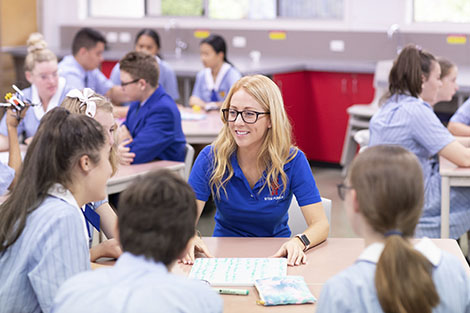
Natalie Anderson
Griffith Education graduates Damian Aldridge, Natalie Anderson and Kara Griggs are three of the talented team behind STEM Punks—2019 winners of QLD Telstra Business Awards, Emerging and Energised category.
STEM Punks offers programs like drone coding, robotics, app design, renewable energy, smart farming, innovation and entrepreneurship and design thinking to students and teachers in primary and secondary schools. Learning outcomes are linked to the Australian Curriculum.
‘This award means we are on the right track and that we are making waves in STEM Education in Australia,’ said Natalie. ‘I moved over to STEM Punks this after winning the Queensland College of Teachers Excellence in Teaching Award in 2018 for my work in STEM.
Latest news
New research set to profile Australia’s swimming population and develop evidence-based...
04 Dec 2025
Griffith University has launched a landmark three-year research project in conjunction with Swimming Australia that aims to transform how...
Why banning social media for under 16s is not a good idea
29 Nov 2024
With the passing of the bill this week to ban young people from social media, we need to keep talking…
What’s the difference between ADD and ADHD?
29 Apr 2024
ADHD, one of the most prevalent neurodevelopmental disorders, affecting 1 in 20 people. Originally termed ADD, it evolved into ADHD due to research...
Transforming early learning through curiosity and interest
06 Mar 2024
The key to boosting a child’s cognitive and emotional development lies in promoting an active interest in topics or activities, Griffith University...